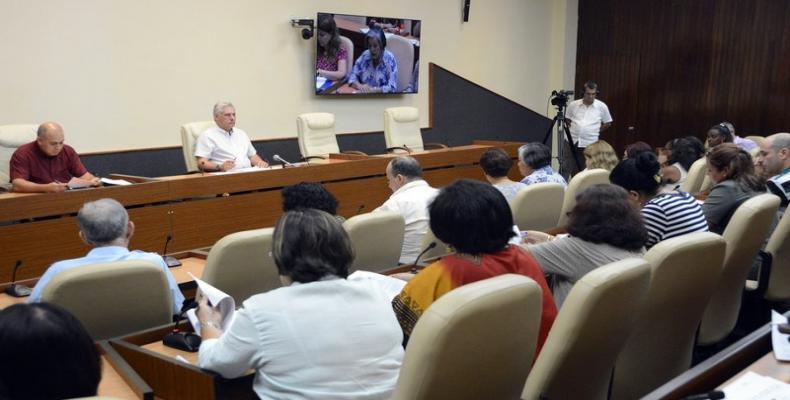October 12 (RHC)-- The President of the Republic of Cuba, Miguel Diaz-Canel, led this week's meeting of the Working Group for Attention to Social Prevention, which examined the incorporation of people into employment and actions to prevent drug use in educational centers.
According to the presidency´s website, he insisted that the success of social care work is in reaching each specific problem, the child who needs it, the families, with names and surnames, to be able to make decisions from the government.
Díaz-Canel called for harmonizing the work and systematizing it all over the country to look for solutions and to take up experiences implemented by historic leader Fidel Castro on social work and update them.
Participants at the meeting learned that provincial working groups dealing with social prevention are being strengthened, and research results are being analyzed for their implementation.
The meeting also agreed that the weakest link in social attention is in the popular councils and in the districts, which is where actions should be carried out directly with those involved.
Hence, in the legal norms to be approved under the new Constitution, responsibility must be clearly expressed at each level.
Participants in the encounter also reported on employment policies for social prevention, the priorities of which are to guarantee the continuity of studies for all ninth grade and pre-university graduates who pass or do not pass the entrance exams to Higher Education.
The president expressed interest in the attention given to inmates who join the workforce during the fulfillment of their sanctions and advocated for the incorportation to work.
The meeting´s agenda also included the work carried out by the Ministry of Education in the prevention of drug use and the formation of attitudes of rejection of this phenomenon from which some Cuban schools do not escape.
The Vice-Minister of Education, Eugenio González Pérez, explained that compared to the same period last year, the number of drug users and the number of students involved have decreased, thanks to the joint work of the National Anti-Drug Directorate, the Public Prosecutor's Office, the Union of Young Communists and the Ministries of Justice and the Interior.
More than 85% of the students who participated in these events, he noted, are studying or working. Of the little more than a hundred young people who used drugs in 2018, one repeats until the end of August 2019.


